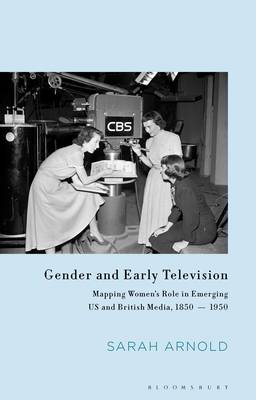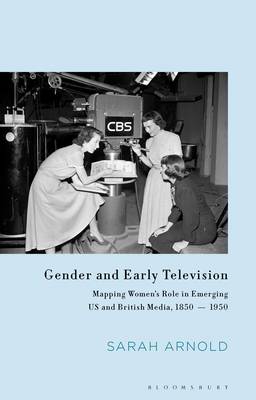
- Retrait gratuit dans votre magasin Club
- 7.000.000 titres dans notre catalogue
- Payer en toute sécurité
- Toujours un magasin près de chez vous
- Retrait gratuit dans votre magasin Club
- 7.000.0000 titres dans notre catalogue
- Payer en toute sécurité
- Toujours un magasin près de chez vous
Gender and Early Television
Mapping Women's Role in Emerging Us and British Media, 1850-1950
Sarah Arnold
67,95 €
+ 135 points
Format
Description
Between the nineteenth century and the mid-twentieth century television transformed from an idea to an institution. In Gender and Early Television, Sarah Arnold traces women's relationship to the new medium of television across this period in the UK and USA. She argues that women played a crucial role in its development both as producers and as audiences long before the 'golden age' of television in the 1950s.
Beginning with the emergence of media entertainment in the mid-nineteenth century and culminating in the rise of the post-war television industries, Arnold claims that, all along the way, women had a stake in television. As keen consumers of media, women also helped promote television to the public by performing as 'television girls'. Women worked as directors, producers, technical crew and announcers. It seemed that television was open to women. However, as Arnold shows, the increasing professionalisation of television resulted in the segregation of roles. Production became the sphere of men and consumption the sphere of women. While this binary has largely informed women's role in television, through her analysis, Arnold argues that it has not always been the case.Spécifications
Parties prenantes
- Auteur(s) :
- Editeur:
Contenu
- Nombre de pages :
- 304
- Langue:
- Anglais
- Collection :
Caractéristiques
- EAN:
- 9781350240070
- Date de parution :
- 29-12-22
- Format:
- Livre broché
- Format numérique:
- Trade paperback (VS)
- Dimensions :
- 140 mm x 216 mm
- Poids :
- 349 g

Les avis
Nous publions uniquement les avis qui respectent les conditions requises. Consultez nos conditions pour les avis.






